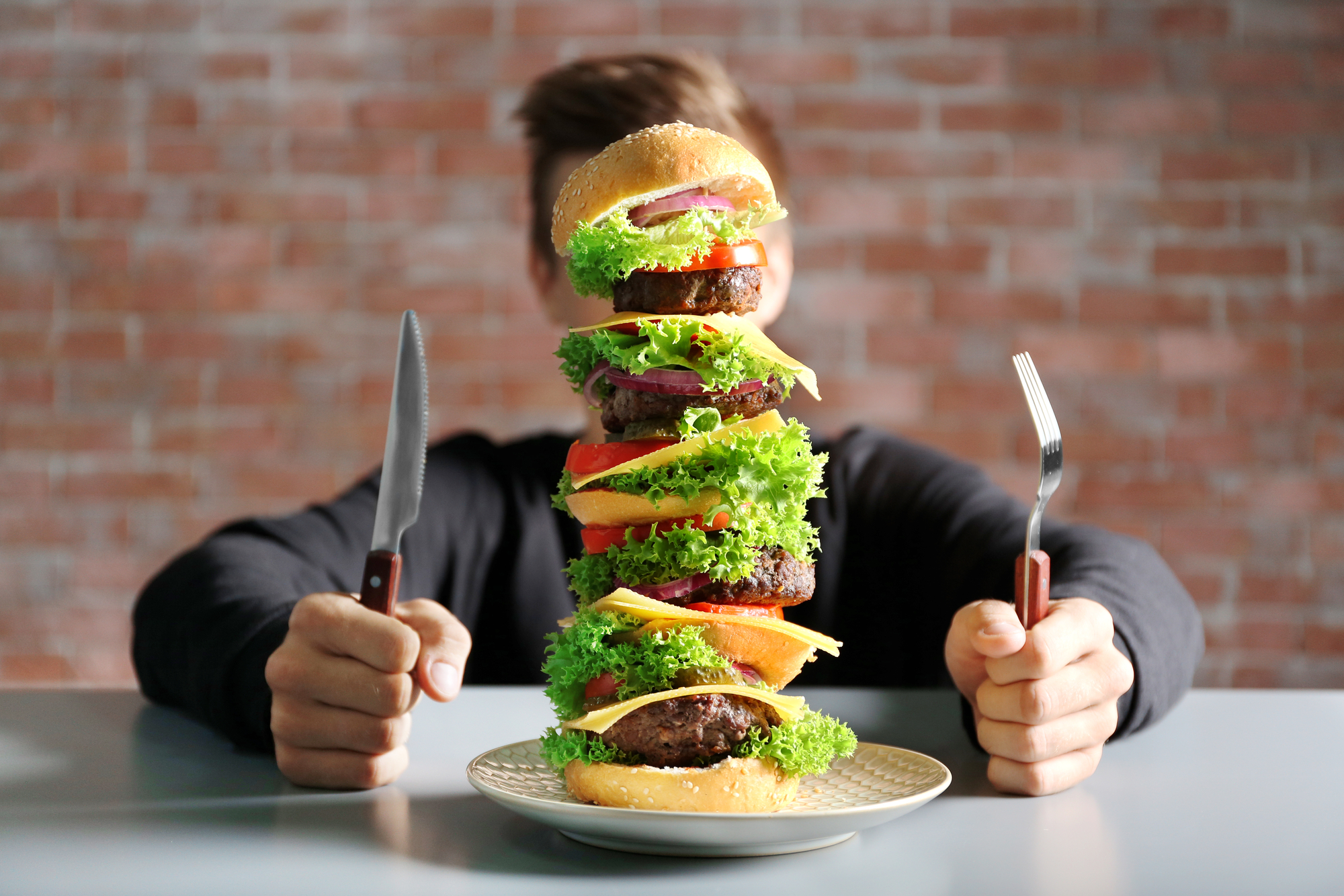10 Healthy Eating Mistakes

Photo by ©moussa81/ Depositphotos.com
Healthy eating is not complicated. It is structured around the idea of replacing unhealthy foods with healthy options. There are few more recommendations, related to the process of cooking, the number of daily meals, and percentage of nutrients in meals. Nevertheless, most of the people make mistakes when they switch to healthy eating.
It does not really matter how much healthy foods you have in your fridge, how often you exercise or how long you eat healthily – these mistakes are common to both beginners and experienced followers of healthy eating. So here they are:
1. Eating The Same Foods Over And Over
Quite often, people who just switched to healthy eating get into the trap of eating the same foods over and over again because they are focusing on those foods they know are safe. For example, they choose cucumbers and tomatoes as the only source of fiber, they avoid carbs (both fast and low) and choose salmon and eggs as the only sources of protein.
Although it may seem like a foolproof plan, such attitude limits the variety of nutrients, creates the feeling of boredom and leads to bingles. The thing to understand is that there is a variety of healthy foods and endless options for healthy meals. The key to a truly healthy eating is eating a variety and feeding your body with different nutrients.
2. Being Too Strict
Healthy eating is not as strict as people who switch to it. There are often situations when people are so strict to themselves in terms of foods they choose and eat, that they start feeling depressed. For example, there are often cases when people put restrictions on food during the working week and catch themselves on binge eating on weekends. As you can guess, it is not healthy at all. What is more, such overeating episodes lead to the feeling of guilt and can become a reason for giving up the healthy diet.
The thing to understand is that healthy eating is about enjoying your food. For sure, it is always better when you choose fruits over candies. Nevertheless, it does not mean that you have to forget about the existence of desserts in one day. It will be better if you treat yourself from time to time. The thing is that restricting yourself from eating a small piece of cake will turn out in eating a whole cake the next day. So try to find some healthy food swap that will make you feel satisfied, or eat that small piece of cake once or twice a week and enjoy every bite.
3. Using Workouts As An Excuse For Overeating

Photo by ©pressmaster/ Depositphotos.com
There are many people who switch to healthy eating in order to lose some weight. So if some overeating episode happens, most of them believe that workouts will help to alleviate it.
Although there is nothing wrong with workouts, the truth is that it is actually impossible to out-exercise a bad diet. The point is that workouts should not be seen as means for eating anything you want. You have to understand that exercising will help you to burn more calories, but it will not make unhealthy food better for your health.
4. Topping Salads With Wrong Dressings
There are two common mistakes people make when choosing dressings for their salads.
The first one is choosing high-calorie dressings like ranch or blue cheese. The thing is that such dressings can add about 500 calories to your low-calories healthy salad, ruining your healthy lunch or dinner.
The second thing is choosing low-fat dressings to avoid extra calories. The thing is that such plants as kale, romaine, tomatoes, and carrots have fat-soluble vitamins, A, D, E, and K, so if there is no fat in your salad, your body will not be able to absorb these vitamins.
Find the golden mean and dress your salad with a teaspoon of olive, coconut, or linseed oil. If you still want to avoid fat, apple cider vinegar is a solution.
5. Buying Everything Organic
There is nothing wrong with buying everything organic if you want to be environmentally friendly. Nevertheless, if you buy organic foods to avoid pesticides, you may be wasting your money on certain foods such as avocado, pineapples, cabbage, corn, etc. The thing is that these plants have the lowest pesticide load, so you do not need them to be organic to be healthy.
6. Thinking Cooking At Home Is Always Low-Cal

Photo by ©belchonock/ Depositphotos.com
It is true that when you make you make your own meals, you can watch what is going into your food. Still, thinking that any food you cook at home is always low-cal is totally wrong and it is not because of calories. The thing is that when you cook at home, you do not always pay attention to portion sizes, especially when you cook following some recipes. The tip is to try eating less than the serving size the recipe suggests.
7. Choosing Non-Fat Versions Of Your Favorite Foods
First of all, cutting fats is not always healthy. The thing is that your body needs fat to function properly. Also, you have to keep in mind that fat-free products often contain a lot of sugar, so such replacement makes no sense and can be even harmful to your health. For example, low-fat dairy can become a reason for insulin resistance.
What is more, cutting fats is not healthy for your psychological health. The thing is that low-fat versions of products you really love will not make you feel satisfied. Healthy eating is about enjoying your food, and when such aspect as enjoyment is lost, there are more chances that you will suddenly find yourself in a bingle eating episode.
8. Buying Fresh Produce For The Entire Week
When you buy fruits and vegetables for the entire week, you can rob yourself of nutrition. The thing is that once fruits or vegetables are harvested, they start losing their vitamins and minerals. For example, spinach is beneficial to your health for no more than 3 days after it was harvested. It means that buying fresh produce every few days is always healthier. Nevertheless, if you have no time to shop for fruits and vegetables every few days, you can add some frozen produce as it gets flash-frozen immediately after it has been harvested and that is why it can keep nutrients up to a year in the freezer.
9. Buying Too Much Processed Food
It is true that processed food can save a lot of time, but the truth is that there is nothing healthy about eating such foods. What is more, sodium and saturated fats stored in such foods are actually harmful to your health, so it is always better to avoid buying and eating them. Still, there are some cases when you have no choice but to buy a certainly processed product, so in such case, at least try to choose products with the shortest list of ingredients. Avoid buying processed foods with trans fats, foods made with oil, as well as foods high in sugar or sodium.
10. Eating Out Or Ordering Takeout More Often Than Not
It is true that most of us are so busy that have nearly no time to cook at home. According to the National Restaurant Association research, the average American adult purchases a meal or snack from a restaurant 5.8 times per week. It is too much of a good thing.
The truth about restaurant meals is that besides they can be super tasty and sometimes even quite healthy, an average restaurant meal is about 1250 calories. It is about half of calories you can eat a day, stored in just one meal. That is why eating out or ordering takeouts on daily basis will never make you healthy. Note that there is nothing wrong with eating out once or twice a week. Just do not turn it into a habit and try to plan your weekly meals in order to reduce the number of purchases from restaurants and takeouts.


